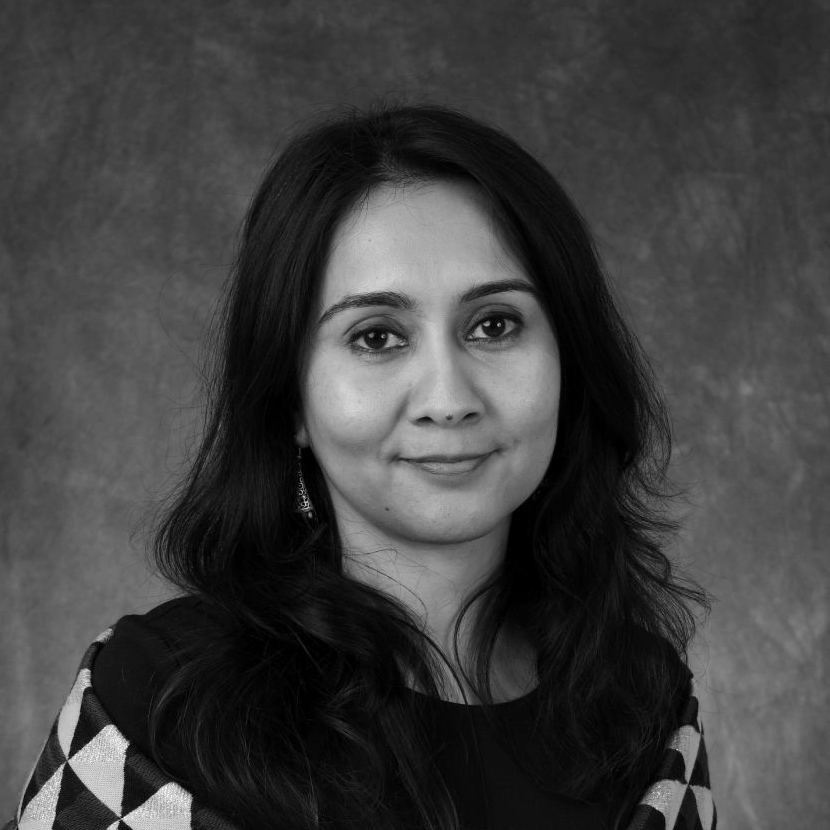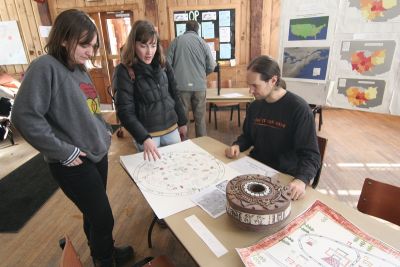Rituparna Mitra
Fields
Literature
Writing
Education
B.A., Presidency College, Calcutta, 2002
M.A., Jadavpur University, Calcutta, 2004
Ph.D. Michigan State University, 2015
At Marlboro Since
2018

I have always been drawn to questions of how we create and sustain community and I find myself seeking answers at the intersection of literature, culture, and politics. I believe these reflections and practices remain more urgent than ever today, when globally, we are witnessing more and more people living on the edges of abandonment. My training in postcolonial and diaspora studies helps me bring a transnational and intercultural perspective. Through exploring literatures from the Global South and their Diaspora, I want to encourage students to think about our connected, often violent, histories, issues of racialized borders and migration, racialized relationships with the environment, and other predicaments we share as an entangled, yet uneven globe. Originating in the humanistic and aesthetic field, my inquiries often move across disciplines as I engage in dialogue and collaboration with colleagues from other fields.
Teaching Philosophy
As a teacher I place emphasis on drawing out an awareness of ourselves as a community of thinkers, writers, speakers, actors – and Marlboro offers me a unique space to do that. I take care to facilitate and guide without overriding students’ voices and visions. Creating strategies for clear writing, effective verbal communication, and critical analysis forms the core of my teaching practice. I encourage a culture of self-reflection that links reading and thinking habits to writing practices. As a practitioner of the humanities in all its capaciousness, I strive to model inclusivity and reasoned discourse within the classroom and outside. Marked by attention to forms, languages, cultures, and histories, my classes offer much-needed critical and comparative skills to negotiate our diverse and complex world. Recent courses I have taught include Global Narratives of Trauma and Witnessing; Transnational and Diasporic Narratives; and The Global Anglophone Novel. In my classes, we immerse ourselves in close reading, pay attention to de-imperialize ways we see and know, and are always ready to think through questions from multiple perspectives. Very often we draw from politics, philosophy, social anthropology, and environmental studies to grapple with the ground before us.
Scholarly Activities
I am currently working on finishing my first book which examines the trauma of displacement and conflict in post-Partition South Asia as represented in five writers who have been largely ignored in literature usually framed as postcolonial: Amrita Pritam, Qurratulain Hyder, Agha Shahid Ali, Githa Hariharan, Akhtaruzzaman Elias. Including work in English, in translation, and in the vernacular, my work pays close attention to forms (short story, novella, poetry) which are often displaced by the primacy of the South Asian novel in literary criticism. The book aims to bring trauma studies, which has been a productive lens through which to view the 1947 and subsequent and ongoing Partitions, in conversation with new areas of thought concerning intersections of the human with the non-human, in particular, how the ruptures of displacement and conflict impact landscapes – natural and built. The writers I examine insistently explore these interfaces – their works create an assemblage of connections linking memory, body, and landscape which allows me to frame trauma beyond the individual subject in crisis to include the scarred environment.
I have published on Qurratulain Hyder in The Postcolonial World. My forthcoming publications include an article on Arundhati Roy’s The Ministry of Utmost Happiness in a special edition of Postcolonial Studies on “Alter-Global Politics”. My book chapter on Bangladeshi writer, Akhtaruzzman Elias’s Khoabnama, is going to be published in a forthcoming edited collection, Re-Membering Twentieth Century Bengal and I have been invited to workshop it at The Dartmouth South-South Forum’s First Annual Workshop on “Home Lost” in August 2019. I have been presenting on my book chapters at various annual conferences of organizations such as Modern Language Association, the North-East Modern Languages Association, the American Comparative Literature Association, and the South Asian Literary Association.
I am developing a second book project around the role of death, ruin, and repair-work in cities of the Global South where debris and detritus often become the site for an emergent community based on the relationality of human and non-human. Arundhati Roy’s 2017 novel The Ministry of Utmost Happiness as well as iterations of various courses I have taught on Migrants, Refugees, and Borders, have helped shaped the project where I also intend to examine cities in South-East Asia, and migrant and refugee settlements in North and Sub-Saharan Africa.
At Marlboro College, I am a member of a team led by Adam Franklin-Lyons and Matt Ollis that has secured an NEH Grant to develop a Certificate Program in Digital Humanities and I will be involved in various stages of planning and implementation with my colleagues. Jennifer Ramstetter (Biology/Environmental Studies) and I will work together to develop a course bridging Humanities and Ecology on Migration.


